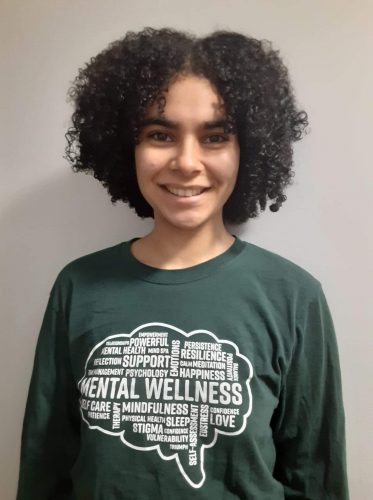I went abroad my first semester. When I came to Syracuse for the first time as a freshman I was lost, amazed by the snow, and stunned by the icy walkways. Looking for a place to feel part of the campus community, I applied to be a peer educator when Health Promotion was on University Avenue, a stone’s throw away from Marshall Street Mall. I applied to be part of the Students Advocating for Mental Health Empowerment team, and I got in!
I did not really know what peer education was, yet I found that sharing my knowledge and being part of a team of like-minded individuals gave me a place at Syracuse University. I liked working for Health Promotion so much that when a new team called BeWise came back together after hiring a new health promotion specialist, I asked if I could be on that team as well. BeWise focuses on giving harm reduction tips for alcohol and other substances, mainly cannabis. In that aspect, I was a blank slate and eager to learn more! Did you know that just because you do not feel the effects of alcohol does not mean that you are not intoxicated?
After Health Promotion became part of the Barnes Center at The Arch, we expanded both the services that we offer and the amount of peer educators that we recruit. Before COVID-19, we did an array of activities for students and connected with them in fun ways like the Sans Bar featuring food and nonalcoholic drinks, the National Eating Disorders Awareness Week art exhibition, “Come As You Are” and the Body Butter Shop to promote self-care and self-love. I really enjoy getting to know other Syracuse University students and seeing how people express themselves through art.
This semester, I trained to facilitate SoulTalk, a safe space to talk about wellness with peers, and the Options Program, which teaches harm reduction tips to students that are referred by Office of Student Rights and Responsibilities. We are also trained to support students interested in sobriety or recovery from substances. Through all this, I discovered that reducing stigma and talking openly about both mental health and substance use/abuse are the first steps to providing quality mental health care and support. This helps people feel comfortable seeking help when they need it. Taking care of ourselves physically, mentally, and emotionally is the first step in preventing disease. Moreover, life is not merely about being free from disease, is about being happy and feeling fulfilled.

Being a peer educator has made me feel part of the Syracuse University community, and I encourage other people that are interested in learning and sharing wellness information with their peers to join us at the Barnes Center at The Arch.
Support the campus community, build your resume and apply to be a Peer Educator today! Positions are paid and topic highlights include substance use education, mental health, in addition to healthy relationships and sexual health. Learn more and find available interest sessions and the application on the Barnes Center website.
Written by Alexandra Nicole Santiago Molina ’21, Barnes Center Peer Educator
